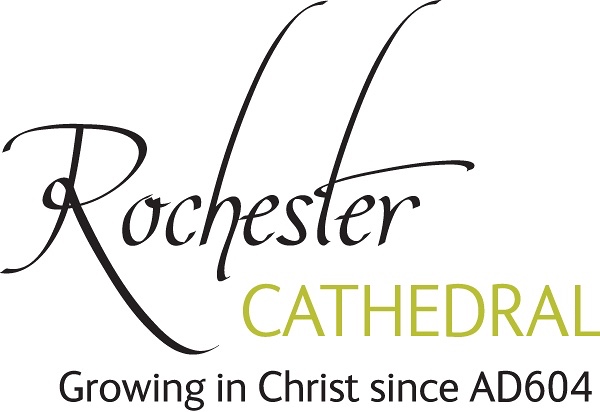Wills of lay clerks Ricard Butler and Peter Bold, 16th century
/Andrew Ashbee explores the wills of two sixteenth-century lay clerks at the Cathedral, Richard Butler and Peter Bold, shining light on the first year of life at the Cathedral after the refoundation of the Cathedral in 1542. Featured in The Friends of Rochester Cathedral Annual Report for 2020.
In June 1541 Rochester was one of eight former monastic cathedrals re-founded with secular chapters by Henry VIll, the former prior becoming the head of the new administration as the new dean.
The Cathedral Choir as we know it today was created then but it is not until 1672 that the records provide full details of the singers, so the first members remain largely unknown to us. We are fortunate that wills survive of two of the first 'syngyngmen', Richard Butcher1 and Peter Bold(e)2 [Fig. 1], which shed some light on the first years of the new regime. This too was the time of the Reformation, when the move towards Protestantism had begun; there are hints in the documents of the way the wind was blowing.
Figure 1: Part of the Will of Peter Bold. Kent Archive and Local History Service.
Neither man mentions a wife so it is quite possible that both were formerly monks who had adapted to their new conditions. Butcher, 'nowbeyng in the Kyngs Collige of Rochester', retains more of the Catholic mindset in his wording and requests.
Fyrst I bequeythe my soule to Almyghtye god and to the blessed virgin mary and to all the hollie Company of hevyn and my body to be buryed in xpen [Christian] buryall where yt shall please god yt I shall dye.
Itm. I will that evry preste dwelling within the said Collige excepte the maysters of the house have for dirige [dirge] and masse songe within the guild for my soul my father soule my mother soules and all xpen soules viii d.
Itm I will that all the Clarks within the forsaid Collige shall have for dirige and masse songe within the queyre vid a pece and evry one of the Chyldren of the queyre to have for theyre labour ij d, desyryng the hole Company here within named to take the payne to ffetche my body to the Churche, if yt please them or els not.
Itm. I will the vicar off saynt nicholas and his Clark have for theyre labours the vicar vij d for dirige and masse and the Clark six pence for dirige and masse.
Itm. I will that all my ffellowes being lay Clarks wthin the forsaid Colledge shall offer at high masse for my soule one halpanye. And evry one of them to take uppe agayne for theyre paynes taken viii d a pece more.
Itm. I gyve unto the two sextanes for theyre labours and paynes two shillings.
The whole ceremony was to be repeated at his 'months day' and both occasions included gifts to the poor. Butcher owned a house in Henley Street, Luddesdown, and most of his bequests - small amounts of money and items of clothing - were naturally to family members in that area. Named witnesses to the will are William Haryson, vicar3, John Watts and Laurence Not. Watts became a singing man in December 1547 and was also an alderman of the city, but 'kepeth the Quier very evil' among other misdemeanours reported at the Metropolitical visitation in 1560.
Bold's will has none of the detailed instructions provided by Butcher, but he simply commends his soul to God and a burial in St Nicholas' churchyard, giving the vicar his 'best Sirplesse'. His executor James Plomley was to arrange the burial:
willing hym to gyve unto Thoms Tyler - xijd to Ryng my knylle with one bell onlie.
I will yt he shall gyve unto any of my ffelowes for singing or [our] faith in Englesshe in the Remembrance of or salvation at the fyrst entering into the Churche & also at the pt when my body shal be buryed - xid a peece and godes blessing.
So Latin had given way to English as Henry VIll's Injunctions took hold in the later years of his reign. Hitherto James Plumley was known only from the 1560 visitation4, but this reference shows almost certainly that he was the first organist of the New Foundation. Among Bold's numerous bequests to the local community were:
To mystris Warner my lute wth the case.
Itm to mystris Smythe my Clavychords.
Clearly Bold's love of music extended well beyond the sacred music of the Cathedral. A different side to his life is shown by another bequest:
to Christofer the Clark my gune wth the great horne.
Mistress Smith also received his best shirt as well as the keyboard instrument, while:
my bed & my boulster [are] equallie to be divided betwix mr plumleis i¡ maids.
Plumley would have had charge of boarding, lodging and clothing the eight choristers, so no doubt the two maids were kept busy by them.
Andrew Ashbee
Featured in The Friends of Rochester Cathedral Annual Report for 2020
Footnotes
1 Kent History and Library Centre [KHLC], DRbPWr19, f.87: Rychard Butcher of Rochester syngyngman, 24 November 1544. Probate 24 March 1544/5.
2 KHLC. DRbPWr10, f.131: Peter Bolde of the College of Rochester Syngyngman, 4 June 1545. Probate 25 October 1545.
3 Presumably of St Nicholas' church, Rochester where William Harrison was vicar from 1537- 51. See CH Fielding, The Records of Rochester, Dartford, 1910, p.230.
4 Watkins Shaw, The Succession of Organists of the Chapel Royal and the Cathedrals of England and Wales from c.1538, Oxford, 1991, p.232.




